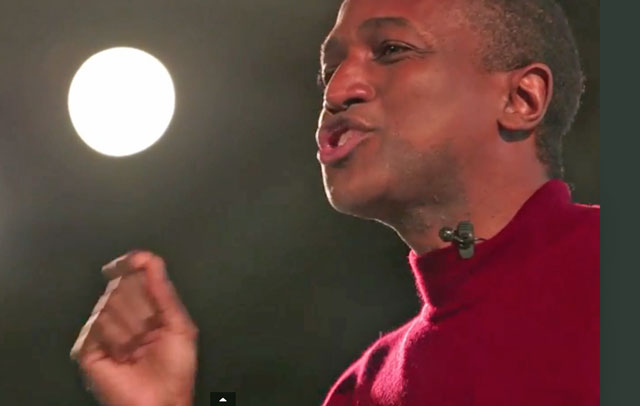Jamaica newspaper seeks reversal of anti-gay law
Colin Stewart is a 45-year journalism veteran living in Southern…
Jamaica’s largest newspaper has endorsed the constitutional challenge against the country’s anti-gay “buggery law.”
In an editorial on Feb. 26, the Jamaica Gleaner wrote:
Break shackles with the courts and the law

We don’t know how Justice Dennis Morrison, the president of the Court of Appeal, will decide among the three justices reviewing Public Defender Arlene Harrison-Henry’s bid for status in Maurice Tomlinson’s constitutional challenge of Jamaica’s law against buggery. We hope, though, that the justices rule in her favour and that, ultimately, Mr Tomlinson prevails in his case.
But whatever is Justice Morrison’s stance, this newspaper was encouraged by the substance and tone of his interventions during last week’s hearings, which we hope were heard and embraced by the Holness administration, leading to Parliament’s urgent widening of the remit of the public defender, especially if Mrs Harrison-Henry loses.
The genesis of this case is the claim by Mr Tomlinson, a gay Jamaican, that the law against buggery – which bars anal sex, whether between heterosexual couples or gays – impinges on his right, guaranteed by the Constitution, to privacy and freedom of association. We agree.
The buggery law is an anachronistic cudgel wielded primarily against gay men, who are not only proscribed from engaging, even in the privacy of their bedrooms, in physical intimacy with the person they may love, or anyone with whom they want to have sex. Further, not only does it discriminate against a class of persons, it insists on the State being voyeur and commissar of the sexual practices of consenting adults.
When Mr Tomlinson brought his case last year, several self-declared guardians of the ramparts of public morality, mostly fundamentalist Christian churches and subsidiaries, sought, successfully, to join the case as interested parties.
Narrow interpretation of the law

A similar bid by the public defender, which was opposed by the Jamaican Government, was rejected, in what, we feel, was a too narrow interpretation of the law establishing that office.
Essentially, the court held that while the public defender has the power to investigate actions and behaviour by agencies of the State that infringe, or are likely to infringe, the constitutional right of a citizen, the office is limited to acting only on a complaint. And where it contemplates legal action, the public defender’s role is to ensure that the citizen has professional legal advice and, if necessary, legal representation. Presumably, the public defender could not be party to cases, notwithstanding the office’s declared role of “protecting and promoting the rights of citizens”.
Here is where Justice Morrison’s interventions were interesting and encouraging. In the face of an insistence by government lawyers on a narrow, strictly constructionist interpretation of the law, Justice Morrison wanted to know whether the court should conform to “rigidity”, “box” itself in, and lose potentially useful contributions from the public defender.
Then there was this observation: “These are some of the great debates of our times,” alluding to “the modern movement” by states to enhance and respond to the rights of citizens. No matter how he eventually rules, Justice Morrison’s public engagement in thoughtful dialogue about a broad, contextual interpretation of legislation is of immense value. There needs to be more.
This case, of itself, and Justice Morrison’s “grappling’ with the issues raised by it, should be enough for the Government to rush to Parliament with an amendment to the law to ensure the unambiguous right of the public defender to be party to cases where, such as this one, the constitutional rights of class of citizens are threatened.
P.J. Patterson [Jamaica’s prime minister from 1992 to 2006, who has recently called for tolerance of homosexuals] may yet have the last laugh on the law and shackles.
The Gleaner editorialized in favor of same-sex marriage in 2014.
Related articles:
- Jamaican Supreme Court stacks the deck against LGBT rights (July 11, 2016, 76crimes.com)
- My lonely day as an outcast in a crowded Jamaican court (April 2016, 76crimes.com)
- Challenge to Jamaican anti-sodomy law gets under way (February 2016, 76crimes.com)
- Why I fight the Jamaican anti-sodomy law (Feb. 22, 2016, 76crimes.com)
- Caribbean Court of Justice dismisses case filed noted LBGT activist (June 2016, Trinidad Express)
- Activists go head-to-head with unaware Trinidad boosters (August 2015, 76crimes.com)
- My selfish reasons for fighting Jamaican homophobia’ (March 2015, 76crimes.com)
- Death threats won’t stop Jamaican LGBT advocate (April 2015, 76crimes.com)
- Jamaica: Inching towards legal equality (August 2014, 76crimes.com)
- OK to block TV tolerance ad? Jamaican court will decide (Feb. 2, 2016, 76crimes.com)
- Jamaica has a new gay-friendly public defender (Feb. 12, 2015, 76crimes.com)
- Progress in Jamaica toward ‘world as it should be’ (76crimes.com)




